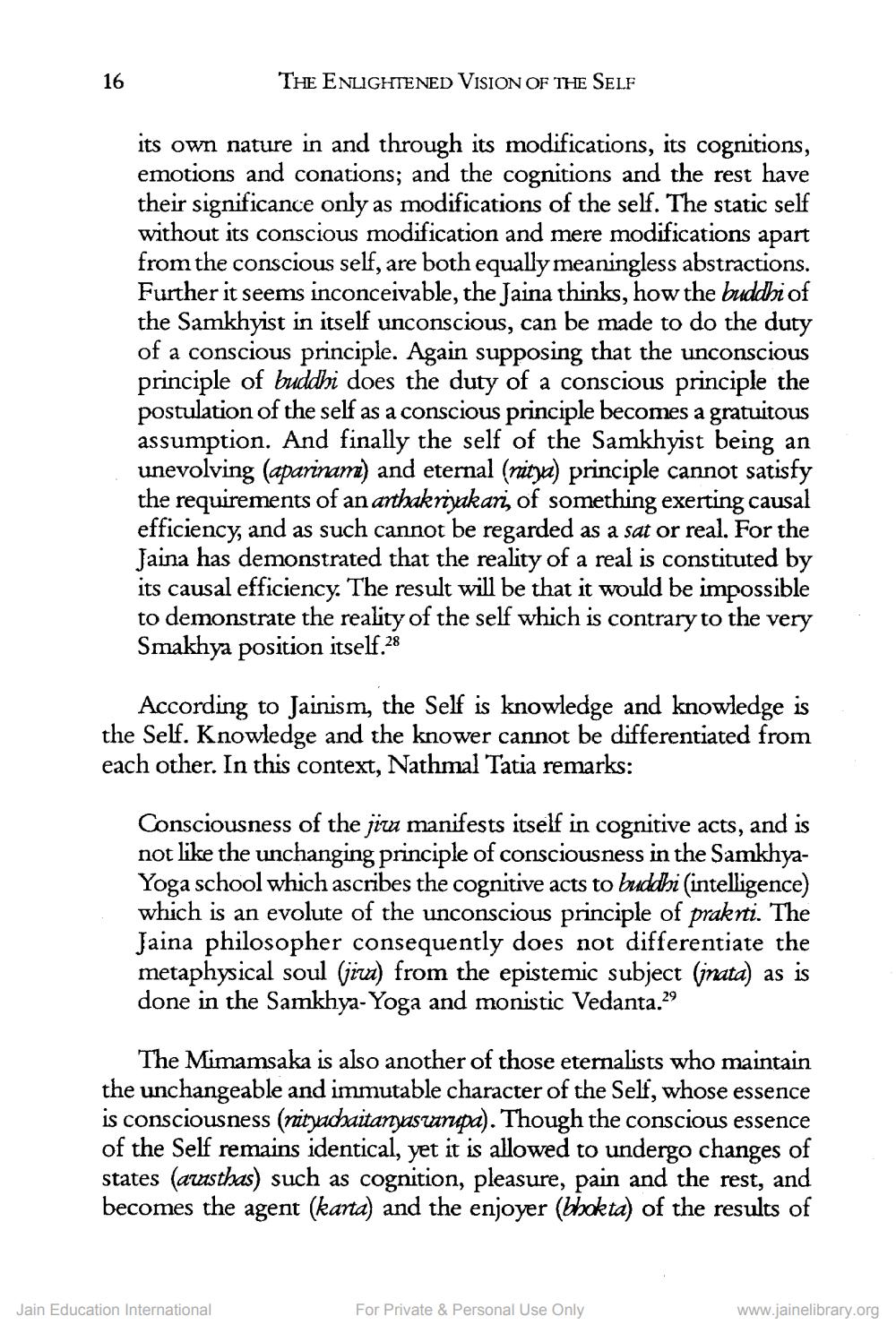________________
16
THE ENLIGHTENED VISION OF THE SELF
its own nature in and through its modifications, its cognitions, emotions and conations; and the cognitions and the rest have their significance only as modifications of the self. The static self without its conscious modification and mere modifications apart from the conscious self, are both equally meaningless abstractions. Further it seems inconceivable, the Jaina thinks, how the buddhi of the Samkhyist in itself unconscious, can be made to do the duty of a conscious principle. Again supposing that the unconscious principle of buddhi does the duty of a conscious principle the postulation of the self as a conscious principle becomes a gratuitous assumption. And finally the self of the Samkhyist being an unevolving (aparinama) and eternal (nitya) principle cannot satisfy the requirements of an arthakriyakari, of something exerting causal efficiency, and as such cannot be regarded as a sat or real. For the Jaina has demonstrated that the reality of a real is constituted by its causal efficiency. The result will be that it would be impossible to demonstrate the reality of the self which is contrary to the very Smakhya position itself.28
According to Jainism, the Self is knowledge and knowledge is the Self. Knowledge and the knower cannot be differentiated from each other. In this context, Nathmal Tatia remarks:
Consciousness of the ji manifests itself in cognitive acts, and is not like the unchanging principle of consciousness in the SamkhyaYoga school which ascribes the cognitive acts to buddhi (intelligence) which is an evolute of the unconscious principle of prakrti. The Jaina philosopher consequently does not differentiate the metaphysical soul (jiva) from the epistemic subject (jnata) as is done in the Samkhya-Yoga and monistic Vedanta.29
The Mimamsaka is also another of those eternalists who maintain the unchangeable and immutable character of the Self, whose essence is consciousness (nityachaitanyasarupa). Though the conscious essence of the Self remains identical, yet it is allowed to undergo changes of states (avasthas) such as cognition, pleasure, pain and the rest, and becomes the agent (karta) and the enjoyer (bhokta) of the results of
Jain Education International
For Private & Personal Use Only
www.jainelibrary.org




